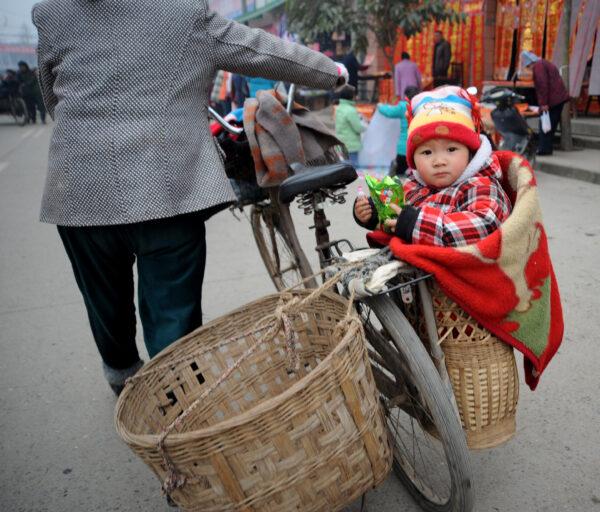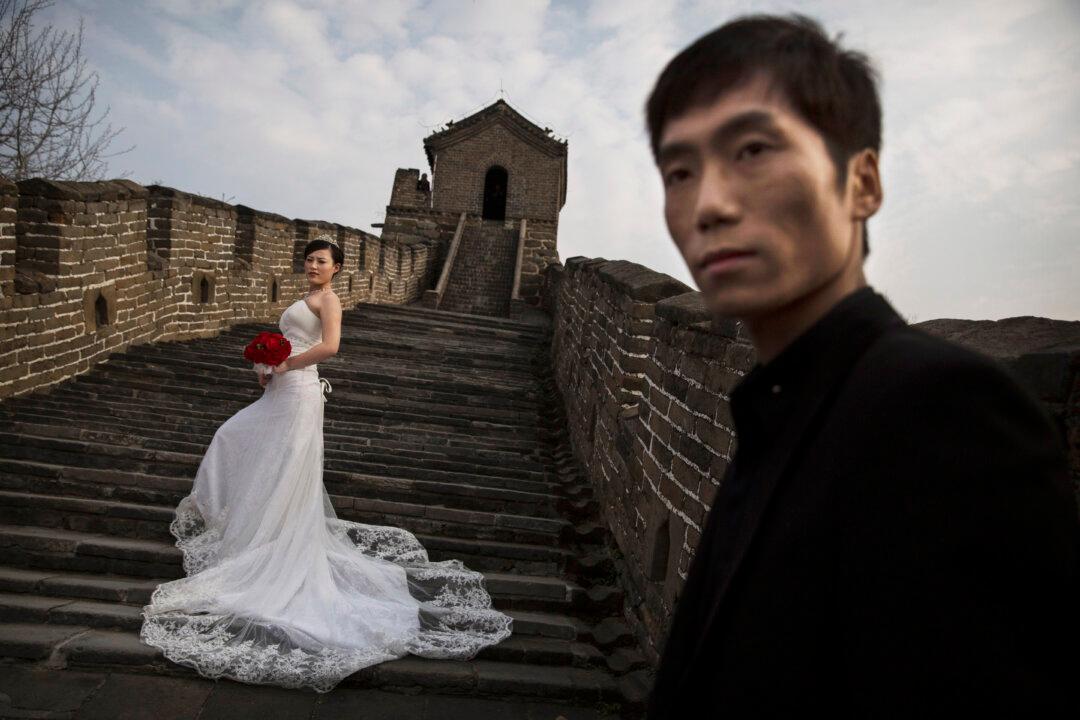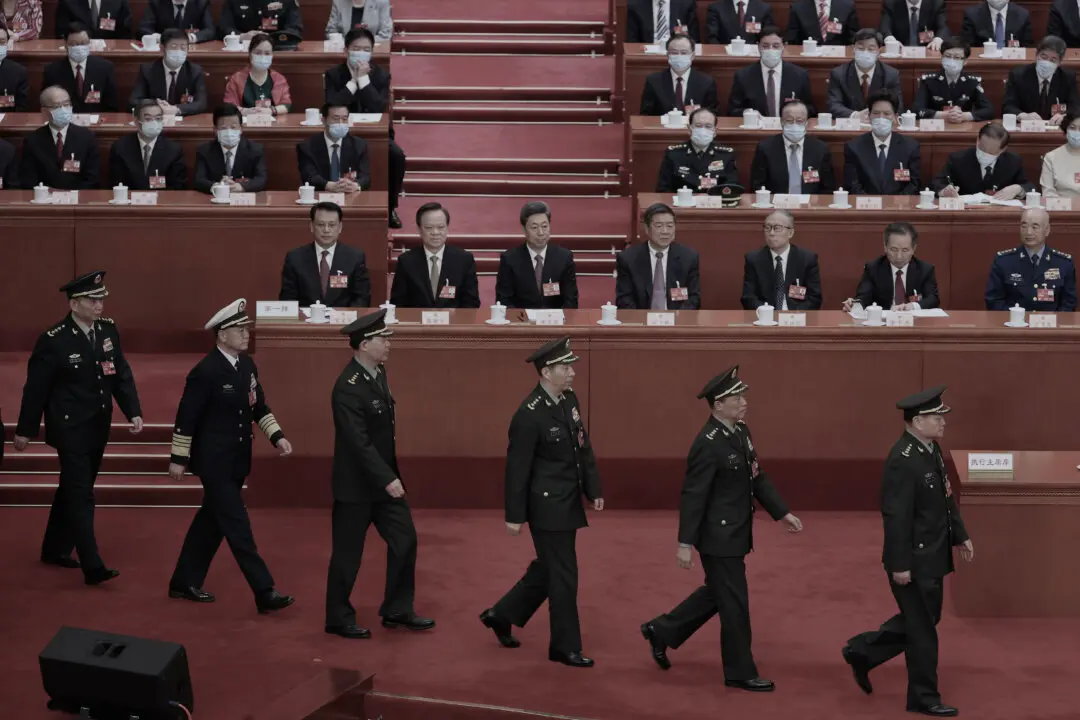The latest official data show that the number of marriage registrations in China fell by more than 20 percent in 2024, a record drop. Despite efforts by authorities to encourage young couples to wed, observers say the decline stems from deep-seated structural problems in the regime and is unlikely to change anytime soon.
Slightly more than 6 million couples married in China last year, a decrease of 1.58 million—a whopping 20.5 percent—from 2023’s 7.68 million couples, according to data released by China’s ministry of civil affairs on Feb. 8.
Looking at numbers from 2013, a peak year, when more than 13 million Chinese couples tied the knot, the numbers are even more startling. Eleven years later, the number has plunged by more than half, hitting its lowest point in 45 years.
A Forced Choice
One expert says that the latest marriage data do not necessarily indicate a changed perception of marriage in China.Instead, the decision not to say “I do” is “a forced choice under the deteriorating social conditions,” according to Zhao Lanjian, a Chinese investigative journalist living in exile in the United States.
Zhao noted that China is often among the top countries on the global “misery index.”
“The root of all this lies in the extremely uneven distribution of social resources and the Chinese communist government’s all-round exploitation of the people,” he told The Epoch Times on Feb. 11, saying also that “the cost of living is too high” in communist-controlled China.
Meanwhile, China’s birth rate has dropped for three years in a row.
Zhao said that China is the only country in the world whose social welfare system has deteriorated despite rapid economic growth.
“The vast majority of Chinese people cannot enjoy any real social welfare from birth to death,” he said.
“In China, every choice of personal life is manipulated and exploited,” and that includes love and marriage, he said.
“The government not only extracts wealth from citizens through taxation, real estate, education, and the medical system, but even makes personal emotions, marriage, and childbirth become tools for maintaining the regime’s stability. Not getting married and not having children are the survival strategies that young Chinese people have to adopt.”

Economic Pressures
Many young Chinese are facing unemployment pressure, struggling to make a living, and can’t afford to even consider marriage amid China’s sluggish economy, Xu Zhen, a senior professional in China’s capital market, told The Epoch Times on Feb. 11.“Some young people who live with their parents for financial support are disappointed with the future and are reluctant to consider marriage,” Xu said, noting that economic pressures are a major reason for the decline in the number of marriages.
“Since the economic situation in 2025 will be worse than in 2024, the number of marriages may decline further.”
Henry Li, an economist at the Maryland-based Informatics & Strategies Institute, agreed that the economy is a major contributing factor to the plunge in Chinese marriages.
“China’s economy is under great downward pressure right now. Many young people become unemployed after graduation. Without a job, they can only go home and live with their parents,” Li told The Epoch Times on Feb. 11.
“There are very few companies in China that are doing well, while a large number of companies are struggling or going bankrupt. The companies are not doing well and the income of their employees is unstable, so people feel insecure about their long-term prospects.
“Everyone expects next year to be worse than this year, so people don’t dare to get married and have children.”
Meanwhile, China is becoming an aging society, as the Chinese working-age population (15 to 64 years old) is declining.
China’s population aged 60 and above increased from 126 million in 2000 to 297 million in 2023, doubling as a proportion of the total population, public data show.

The Chinese Communist Party (CCP) has pursued a variety of policies, measures, and propaganda in recent years to push young Chinese to get married and have children. Nonetheless, the country’s marriage and birth rates continue to plummet.
As the trend continues, Li said, the issues caused by China’s aging society—itself a symptom of deep structural problems—will become more and more serious.
The Legacy of China’s One-Child Policy
China’s aging society and low marriage and birth rates are the result of the CCP’s mandatory one-child policy, Li said.The draconian policy was forcibly implemented from 1979 to 2015, causing countless abortions—both selective and forced—over the decades. Many parents preferred boys when they were only allowed to have one child, which led to a serious gender ratio imbalance.
Li said. “Now, no matter how they push people to get married and have children, and make it harder for people to divorce, it won’t work.”
Xu said that the phenomenon of young people not wanting to get married and have children “breaks the normal law of human reproduction, the cycle of birth, aging, illness, and death, and the continuation of the family line.” He predicted that it will “have some impact on many aspects of society, economy, and ethics in the next few decades.”

In a Feb. 11 article for the Chinese-language edition of The Epoch Times, U.S.-based China analyst Wang He observed that China “has been a country of etiquette and a large population” for millennia.
Three-quarters of a century of communist rule wreaked havoc with that stable tradition, throwing the country into “an unprecedented crisis,” he said.
“The marriage rate has dropped to the lowest level, the divorce rate has risen to the highest level, people are reluctant to have children, the aging problem has intensified in an unprecedented manner, and China’s total population has fallen into negative growth,” Wang said.
“China is truly in a dangerous situation. The only way to survive is to disintegrate the CCP.”






